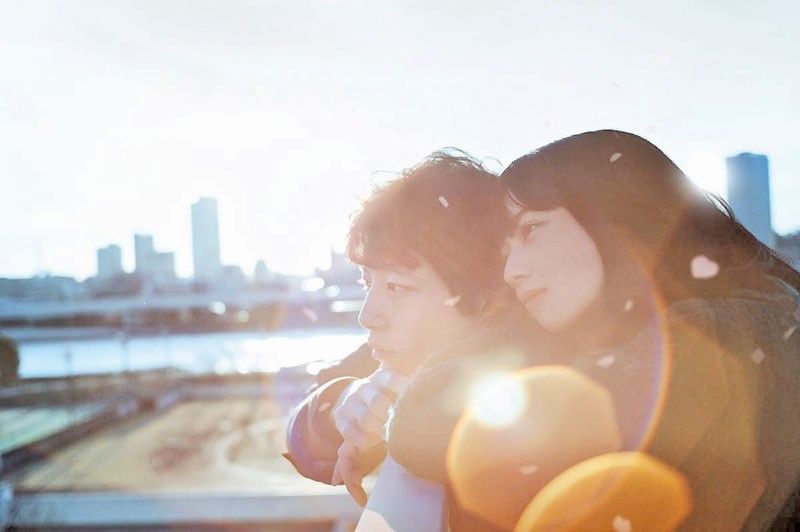The lasting theme of love and loss

Film review: The Last 10 Years
It’s all been done before, a couple whose romance is ill-fated because one of them is terminal: the original was Love Story (1970) and its unabashed imitation Walk To Remember (2002). Then there was Dying Young (1991), and much later The Fault In Our Stars (2014) and Me Before You (2016). In between was a slew of clones, some better, some bad. But the romance sub-genre that involves someone dying is very much alive.
Michihito Fujii’s The Last 10 Years is the latest addition from Japan. We all know how the movie will end; no spoilers here. But Japanese superstar Nana Komatsu’s sublime (under)acting as Matsuri, her exceptional chemistry with male lead Kentaru Sakaguchi (Kazuto), a talented supporting cast, and the gloriously introspective direction, make this film a refreshing restatement of the theme.
Matsuri is a 20-something writer, who becomes seriously ill before graduating from college, and spends two years living in a hospital to undergo a series of surgeries for a rare disease: pulmonary hypertensive aneurysm, which prevents the heart from pumping enough blood into the lungs. The surgeries do not work, and the prognosis is bleak: 10 years at most.
Matsuri accepts her fate and, having been discharged from the hospital, tries to live a normal life. Attending a high school reunion, she runs into an old classmate, rich boy Kazuto, considered as most likely to succeed. Reading from letters to themselves retrieved from a time capsule sealed 10 years prior, Matsuri and Kazuto both realize their dreams from high school will never be realized. She will be dead in a decade; he is disowned by his family. Distraught from such an epiphany, Kazuto jumps from the window of his apartment. He survives with a few broken bones, but Matsuri, visiting him in the hospital, chides him for his “selfishness.”
But as two wounded souls are wont to do, they grow closer and eventually fall in love. Not easily, though, as Matsuri first tries to deny, and then runs away from, her feelings for Kazuto. She cannot tell him that it is futile to be with her; she hasn’t long to live, she will progressively become weaker. She cannot even consummate their relationship because any exertion could suddenly kill her.
Kazuto, however, is relentless, and in time, in the full bloom of Sakura, she succumbs. They spend several years of bliss in each other’s arms until her worsening condition can no longer be kept hidden. She tells him the truth; he is devastated, but complies with her “last wish” that they keep away from each other, saying that “falling in love with you makes me afraid of dying.”
Kazuto thus turns his energies into running a small restaurant that the aging owner sells him in due time. And he pines for her incessantly, waiting for the day that she will finally realize that she needs him beside her.
Both leads play off each other wonderfully. Komatsu’s terrifically restrained acting manages to convey internal turmoil with just her eyes and the inflection of her voice, contrasting with the angst and fury that Sakaguchi is barely able to get a lid on, like a volcano on the verge of exploding. All of these emotions are set on the backdrop of the calm of a thick row of cherry blossoms, pristine snowfall, the gently-falling leaves of autumn, the pure white radiance of the sunlight in summer.
And while it is old hat to cinematically make a symbolism of the seasons, in this movie they are so beautifully photographed that they go beyond symbols and actually complement the emotions felt by the characters, serving as outward manifestations of their introspection, in conjunction with gestures and voice. The resulting effect is that of scenes that derive their power from visual artistry, much like an ukiyo-e painting from the Edo period.
The storyline lends itself to lachrymosity, of course, and it is to the credit of the scriptwriters that they did not milk this potential to death (pun intended). Rather, the film opted for a quiet kind of sadness that does not make you sob uncontrollably so much as make you shed gentle tears from the corners of your eyes. This as you grow increasingly invested in the characters of the two protagonists, whose back stories are fleshed out leisurely but compellingly throughout the movie’s more than two-hour running time.
The Last 10 Years is indeed the latest play on a lasting theme of love, life and loss. And its singular achievement is making a story that has lasted this long, feel like it is the latest.
- Latest
- Trending
































